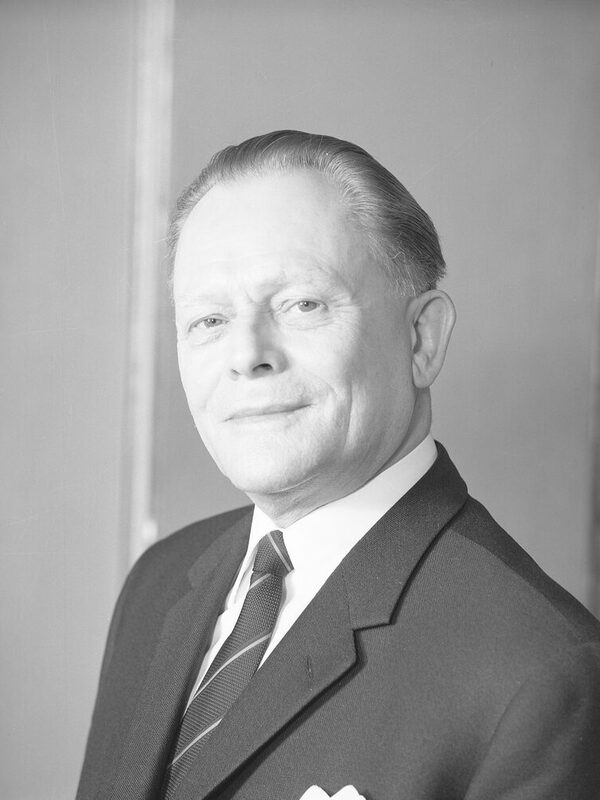Feller, Georg
Feller, Georg
Trade unionist, resistance fighter, local politician
Born: 30.01.1906 in Darmstadt
died: 12.12.1993 in Wiesbaden
After elementary school, the eldest son of a large family of craftsmen completed a commercial apprenticeship in Wiesbaden and also attended the municipal commercial training school and evening school. He then worked, interrupted by periods of unemployment, as an employee in various local companies.
In 1925, he was one of the founding members of the local branch of the Reichsbanner Schwarz-Rot-Gold (Black-Red-Gold Banner of the Republic). The following year, he joined the SPD. He was also a member of the Central Association of Salaried Employees at the time. During the Weimar Republic, he was involved in a number of disputes with local NSDAP supporters and was therefore given a suspended sentence for "passive breach of the peace". During the "Third Reich", together with Albert Markloff, he headed the Wiesbaden base of a resistance organization consisting of SPD and Reichsbanner members that was widely spread throughout the Rhine-Main region. Here alone, a readership of up to 50 opposition members was supplied with writings critical of the regime, above all with the party newspaper "Sozialistische Aktion", which was regularly smuggled into Germany by the SPD executive committee in exile in Czechoslovakia.
Feller and Markloff were arrested in the fall of 1935. In 1936, they were convicted of "preparing a highly treasonous enterprise". Despite being tortured, they did not reveal the names of their anti-Nazi friends. After serving his two-and-a-half-year prison sentence, Feller was imprisoned in Buchenwald concentration camp until 1940. He then worked as an accountant in Wiesbaden until he was called up to the 999 penal battalion at the beginning of 1943. Until the end of the war, he was deployed as a radio operator on Rhodes, where he again took part in resistance activities.
From 1945 to the beginning of 1947, he was a British prisoner of war in Egypt. Shortly after his return, he joined the Wiesbaden city administration as an employee and at the same time headed the local POW and returnee support office of the SPD until 1951. From 1947 to 1950, he served as chairman of the works council, and from 1950 to 1960 as trade union secretary, managing director and finally first chairman of the Wiesbaden district administration of the ÖTV trade union. From 1952 to 1956, he served his hometown as a city councillor, from 1956 to 1960 as an honorary city councillor and from then until 1971 as a full-time city councillor for youth, social affairs and health. In 1984, he was awarded the Wilhelm Leuschner Medal and two years later the title of "City Elder". His estate can be found in the Wiesbaden city archives.
Literature
Resistance and persecution in Wiesbaden 1933-1945. A documentation. Magistrate of the State Capital Wiesbaden - City Archive (ed.), Gießen 1990.
